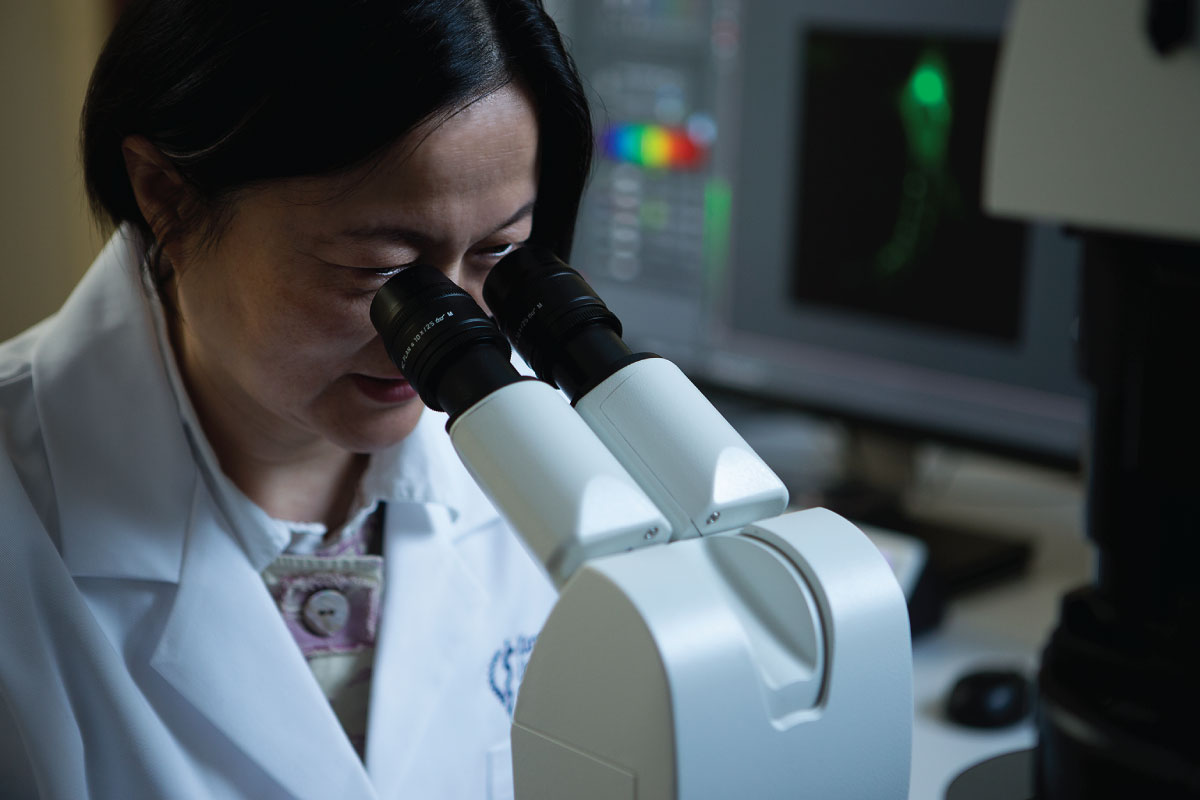An imbalance of bacteria in the digestive tract may contribute to the progression of Amyotrophic Lateral Sclerosis (ALS) according to new research led by KCU scientist Jingsong Zhou, PhD and Jun Sun, PhD of University of Illinois at Chicago (UIC). Their preliminary research suggests probiotics could be a potential therapy for the disease.
The study, which appears in the journal Clinical Therapeutics, found evidence that targeting gut microbiota with natural bacteria products was successful in alleviating ALS progression in animal models.
ALS is a fatal disease with progressive loss of motor neurons. The only current treatment approved by the US Food and Drug Administration extends life by just a few months.
“Due to the severe and rapidly progressing neuromuscular symptoms, the majority of study on ALS has focused on neurodegeneration,” said Zhou. “We hope that our published studies will draw attention from the research field, encouraging more investigators to consider ALS as a systemic disorder by evaluating the potential contributors outside of the nervous system.”
While Zhou and her colleagues are encouraged by what they believe is a solid step forward, Zhou says the work is still in the preliminary stages. “There is a lot to do before we can translate the basic research to finally treat ALS patients,” Zhou said.
Robert White, PhD, dean of the KCU College of Biosciences said Zhou and her colleagues are contributing crucial knowledge about the devastating disease.
“This research represents a significant and innovative approach to understanding and treating ALS,” said White. “Dr. Zhou is a nationally recognized researcher in this field, and we are delighted to have her at KCU.”
Funding for the research came from one of 58 ALS Association grants totaling $11.6 million, which was raised through the international Ice Bucket challenge.



_20240102160918_0.png?w=140&h=140)
(0) Comments